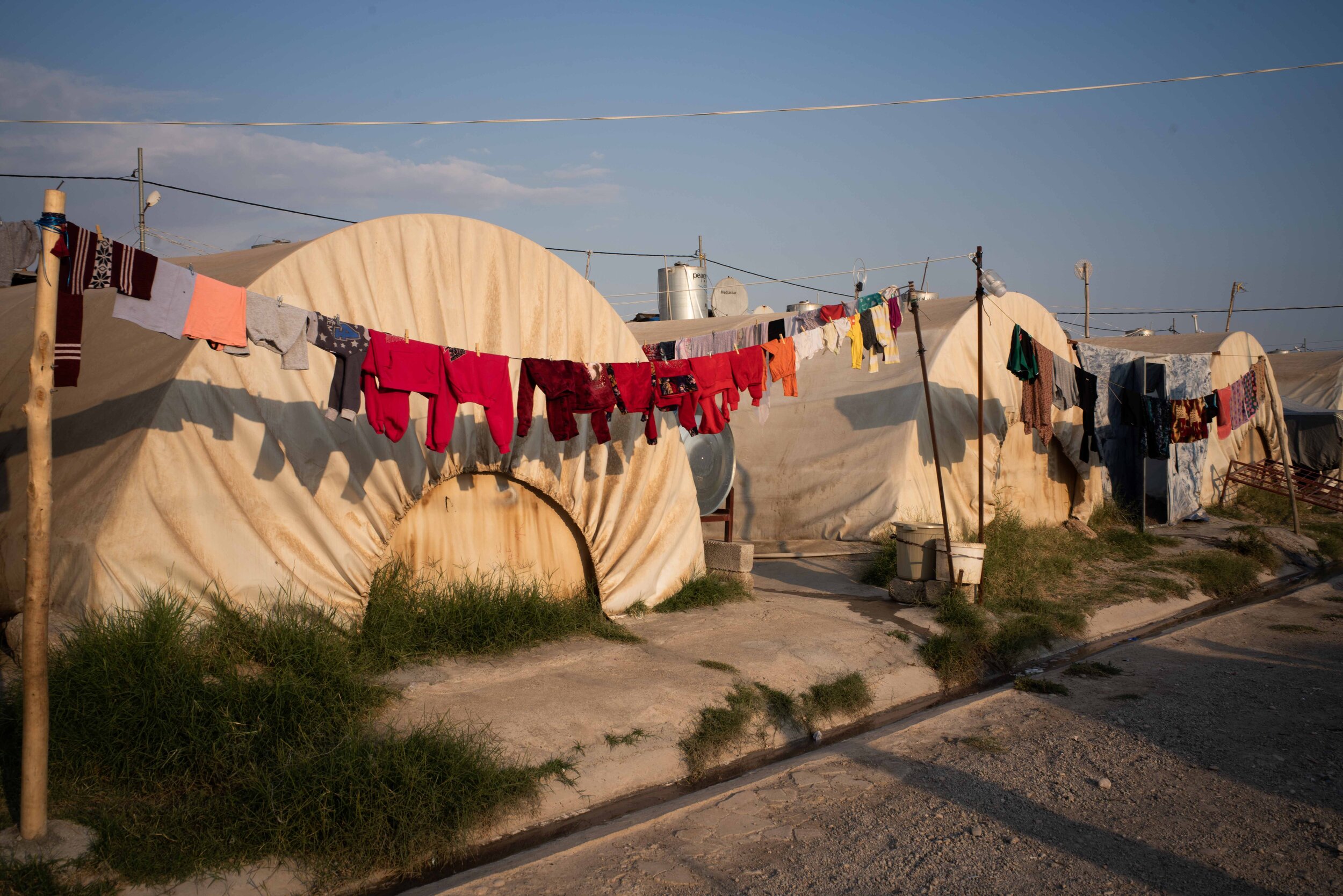As the COVID-19 pandemic continues to impact countries across the globe. The spread of the virus has meant not only heightened health risks but has also caused widespread economic and social strains resulting from drastic efforts to slow the spread of the virus.
More than 25 NGOs from across the globe issued a joint statement highlighting the risks for vulnerable populations in Iraq and urging national and international actors to take concrete steps to mitigate those risks and provide the necessary resources to support these communities, including Yazidis, Christians, and other religious and ethnic minorities.
The COVID-19 crisis has introduced new challenges for already vulnerable communities in Iraq. For example, internally Displaced Persons (IDPs) and those who have returned to areas previously decimated by ISIS, including Sinjar, the Nineveh Plains, and Mosul are especially at risk. As the joint statement points out, “security, reconstruction and basic services are still lacking to allow a dignified return.” As an example, in Sinjar there are only two hospitals and a single ventilator for a population of nearly 160,000 people in the region. These communities were already facing significant mental health challenges as a result of the acute trauma of mass atrocities and genocide and many of the programs that were ongoing have been suspended.
In a recent publication, Protecting Vulnerable Religious Minorities in Conflicts and Crisis Settings, RFI highlighted the ways in which pre-existing religious discrimination and restrictions are often exacerbated in times of crisis, and it is imperative that aid organizations and external actors bear these challenges in mind in their assistance efforts.
Family residences in a Yazidi IDP camp in Iraq.
Credit: Alice Aedy/Nobody’s Listening
The joint statement also highlights how the crisis has created a dangerous security vacuum, which ISIS and other armed militias are seeking to exploit. Failures to provide effective and inclusive security for all Iraqis has been the source of unrest in recent months. Despite the many challenges COVID-19 presents, urgent progress must be made to address these security concerns while continuing to seek appropriate justice and accountability for those responsible for mass atrocities and genocide.
Read the Full Statement: Joint NGO Statement: Humanitarian and Security Implications of the COVID-19 crisis in northern Iraq. (The statement is also available from Yazda in Arabic, German, and French.)
Signatories:
1. Aegis Trust (Rwanda/United Kingdom)
2. Air Bridge Iraq – Luftbrucke Irak (Germany)
3. Asia-Pacific Centre for the Responsibility to Protect (Australia)
4. Assyrian Policy Institute (United States of America)
5. Center for Justice and Accountability (United States of America)
6. Central Council of Yazidi in Germany – Zentralrats der Êzîden in Deutschland (Germany)
7. Free Yezidi Foundation (The Netherlands)
8. Genocide Alert (Germany)
9. International Coalition for the Responsibility to Protect (United States of America)
10. International Council for Diplomacy and Dialogue (France)
11. Iraqi Christian Relief Council (United States of America)
12. Jiyan Foundation for Human Rights (Iraq)
13. Minority Rights Group International (United Kingdom)
14. Montreal Institute for Genocide and Human Rights Studies (Canada)
15. Nadia’s Initiative (United States of America)
16. Nobody’s Listening (United Kingdom)
17. Religious Freedom Institute (United States of America)
18. Sanabel Al-Mostaqbal Organization for Civil Society Development (Iraq)
19. Society for Threatened Peoples – Gesellschaft für bedrohte Völker-International (Germany)
20. Trauma Treatment International (United Kingdom)
21. Turkmen Rescue Foundation (Iraq)
22. Voice of Ezidis (France)
23. Women’s Refugee Commission (United States of America)
24. World Federalist Movement – Institute for Global Policy (United States of America)
25. Yazda (United States of America)
26. Shlomo Organization for Documentation (Iraq)
27. Post- Conflict Research Center (Bosnia and Herzegovina)
28. Coalition for Genocide Response ( United Kingdom)
29. International Coalition of Sites of Conscience (United States of America)
THE RFI BLOG

Does Southeast Asia Lead the World in Human Flourishing?

RFI Leads Training Session on Religious Freedom Law and Policy for U.S. Army War College

Oral Argument in Charter School Case Highlights Unconstitutional Motives Behind OK Attorney General’s Establishment Clause Claim

Largest Longitudinal Study of Human Flourishing Ever Shows Religion’s Importance

Keys To Human Flourishing: Faith And Relationships Outweigh Wealth
CORNERSTONE FORUM

Reaffirming Religious Freedom: Bridging U.S. Advocacy and Iraq’s Constitutional Framework

Political Polarization, Same-Sex Marriage and Religious Liberty

Bridging the Gap Between International Efforts and Local Realities: Advancing Religious Freedom in the MENA Region

Challenges to Religious Freedom in Iraq and the Critical Need for Action


![[English] Joint_NGO_Statement_Iraq_COVID-19_Humanitarian_Security_Implications - COVER.jpg](https://images.squarespace-cdn.com/content/v1/57052f155559869b68a4f0e6/1587048162354-GOPOT9KKXGQNAK763CGT/%5BEnglish%5D++Joint_NGO_Statement_Iraq_COVID-19_Humanitarian_Security_Implications+-+COVER.jpg)
